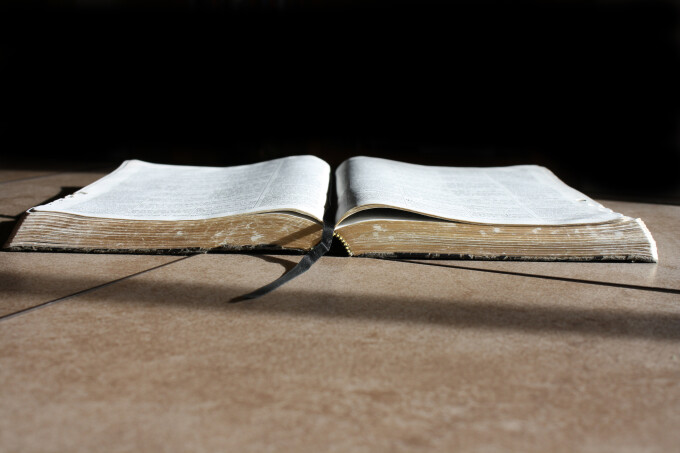Spiritual Development - October

“The Waiting is the Hardest Part” by David Mathis
Patience is the Virtue – This illusive virtue, then, which corresponds to the dreaded condition of waiting is patience. It is the first thing Paul celebrates about love in 1 Corinthians 13 – “love is patient” (1 Corinthians 13:4) – and one of the most repeated exhortations to church leaders (1 Thessalonians 5:14; 2 Timothy 2:24; 4:2). Eternal life is the possession of “those who by patience in well-doing seek for glory and honor and immortality” (Romans 2:7). And patience is a virtue so rare, and of such divine doing, that Paul twice draws on its exercise as a defense of his apostleship (2 Corinthians 6:4-6; 12:12). Patience is the companion of humility and the enemy of pride. “The patient in spirit is better than the proud in spirit” (Ecclesiastes 7:8). It is the appropriate posture of the creature illumined enough to say, “God is sovereign, and I am not.” And it is not our own production, but “the fruit of the Spirit” (Galatians 5:22; 5:5).
Three Pathways for Cultivating Patience – In the practice of patience is one of the times we most feel the burn of sanctification and the inward groans of the Spirit (Romans 8:23). At times it can seem we’re being conformed to Jesus almost effortlessly; the winds of the Spirit in our sails, as we feed the nourishment of self-forgetfulness. But part of waiting is the conscious hardship. We taste the bitter pill of patience and feel it slither ever so slowly down our throat. It’s not patience when we’re gloriously unaware of the waiting. And so when we feel the burn, we need divine promises in store and a plan of attack. Here are three biblical pathways for cultivating patience in the waiting.
1 Renew Faith and Hope – when you feel the first resistance, let it be a reminder to go Godward. Recalibrate the focus of your faith. Move the weight of your trust off self, where it keeps gravitating back, and consciously reorient on God. Whether it’s simply spare moments or seemingly endless days, waiting is not waste in God’s economy. It is in the delays and the pauses, and in becoming aware of our lack of patience, that he works to save us from self-reliance and revitalize our faith and hope in him. Patience comes with faith (2 Tim. 3:10; Heb. 6:12) – faith for the moment, and hope toward the future. Faith feeds hope, and when, “we hope for what we do not see, we wait for it with patience” (Romans 8:25).
2 Pray and Give Thanks – Second, let the waiting prompt you to pray. The summons to “be patient in tribulation” is followed with the reminder to “be constant in prayer” (Romans 12:12). A healthy life of prayer doesn’t necessitate hours each day in the closet, but eyes to see the opportunities in, and a heart to size upon, the unexpected moments and seasons of waiting. And there is a remarkable role for thanksgiving in cultivating “patience with joy.” Paul prays for Christians that they may be “strengthened with all power, according to his glorious might, for all endurance and patience with joy, giving thanks to the Father, who has qualified you to share in the inheritance of the saints in light” (Colossians 1:11-12).
How do we “put on … patience” (Colossians 3:12)? The apostle points us to thanksgiving not once or twice, but three times: Be thankful. Let the word of Christ dwell in you richly, teaching and admonishing one another in all wisdom, singing psalms and hymns and spiritual songs, with thankfulness in your hearts to God. And whatever you do, in word or deed, do everything in the name of the Lord Jesus, giving thanks to God the Father through him. (Colossians 3:15-17) Few things will pass the time as effectively and richly as counting your blessings and naming them to God.
3 Remember the Patience of God – Finally, the pain of waiting can point our hears to the life-saving patience of God. We owe our everything to his kindness and patience with us. “Do you presume on the riches of his kindness and forbearance and patience, not knowing that God’s kindness is meant to lead you to repentance?’ (Romans 2:4). He was patient when the first man and woman sinned. His “patience waited in the days of Noah” (1 Peter 3:20). He was patient with Abraham and patient with Israel. He showed his patience through his prophets (James 5:10). And if he is patent even with “vessels of wrath prepared for destruction,” how much more has he shown his patience to us in making known “the riches of his glory for vessels of mercy, which he has prepared beforehand for glory” (Romans 9:22-23)? Jesus himself is the climactic display of God’s perfect patience toward sinners (1 Timothy 1:16). He is patent toward you, not wishing that any should perish, but that all should reach repentance” (2 Peter 3:9) We “count the patience of our Lord as salvation” (2 Peter 3:15) and bank on his promise, in all our waiting, to “sustain you to the end” (1 Corinthians 1:8).
